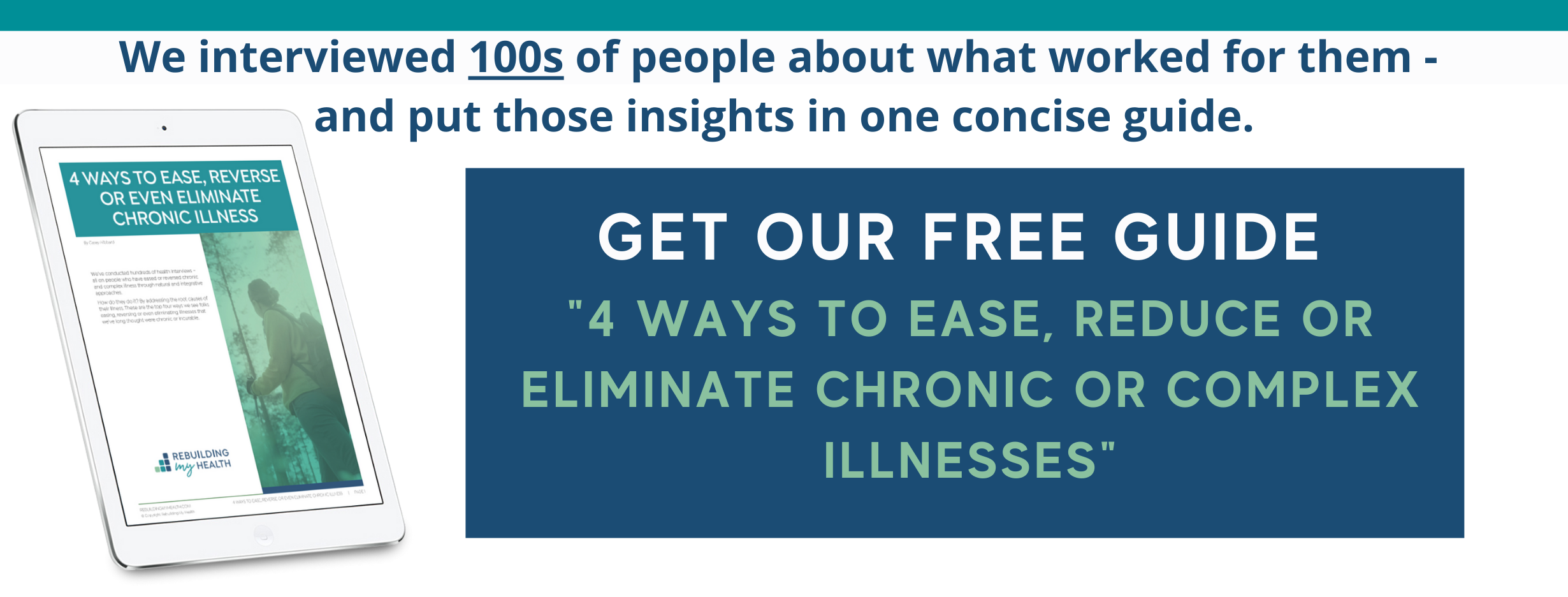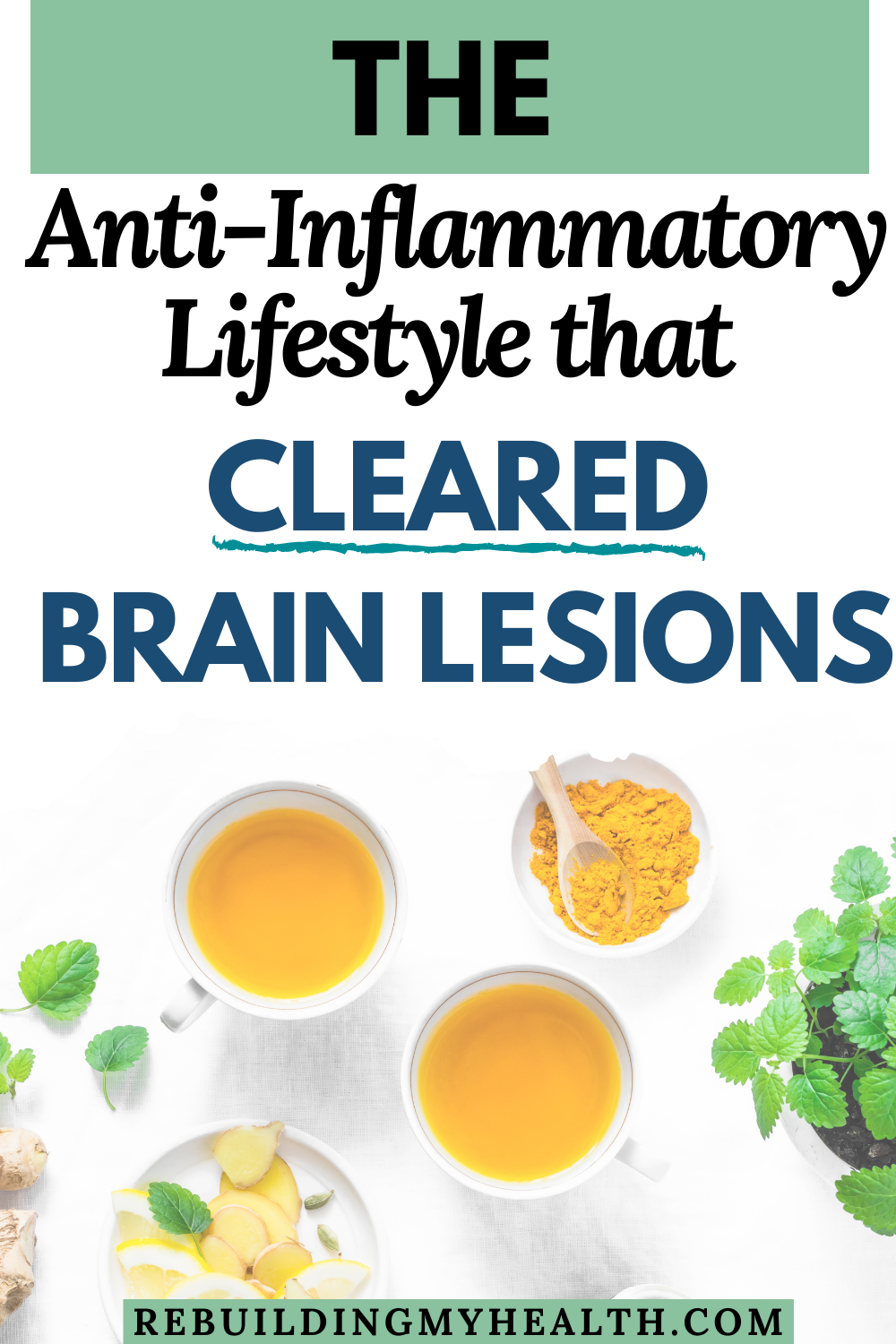Brain Lesions Disappear – in Under a Year – for Former ER Nurse
For three decades, Roxane Sheeler dedicated herself to helping others as a nurse in demanding emergency rooms. But it took a health scare – that turned her into an ER patient – to realize she needed to take better care of herself.
“My stress level was off the charts,” she says.
Roxane, 64, put in exhausting 12-hour days in Reading, Pennsylvania area hospitals, attending to some of the most urgent medical emergencies. With a relentless pace, she often skipped meals, or grabbed convenient, rather than healthy, meals.
Life’s frenetic pace chipped away at her body. Roxane took prescription medications for high blood pressure, high cholesterol, depression, anxiety and hypothyroidism. She also suffered from eczema, vitiligo (loss of skin pigment), and connective tissue disorder, all autoimmune conditions.
Then, on a day in early 2016, Roxane was struck by a six-hour instance of vertigo. Even more frightening, she experienced double vision, and found it difficult to think or speak clearly. She headed straight for the emergency room.
What caused the neurological breakdown remains unclear. Via an MRI, doctors found evidence of a stroke. Yet at the same time, they found alarming brain lesions – typically characteristic of multiple sclerosis.
While she was still unable to walk, doctors sent her home with heavy doses of medication – steroids, vestibular suppressants and benzodiazepines – as well as strong admonitions.
“My doctor told me I needed to change my lifestyle, but gave no help in how to do that,” she recalls.
Recovery Begins – with Diet and Exercise
A self-described “zombie” from the new medications, Roxane knew she had to take control of her recovery. She explored anti-inflammatory diets and soon began one created by Dr. Andrew Weil. She also started moving her body, ever-so-slowly at first.
With gentle movement, she regained her ability to walk within a couple of weeks. Gradually, she made walking a daily habit, starting with just her driveway, using a walker or cane for support. Then she progressed to local trails. As Roxane increased her mileage, she switched to the treadmill for the added support of the handrails.
Fairly quickly, Roxane lost 40 pounds and started feeling better. And within six weeks of returning home, she stopped taking post-stroke medications.
Uncovering Hidden Causes of Fatigue
Early on, Roxane researched on her own, drawing on her nursing background – and made considerable progress in her mobility and overall health. But at a certain point, she plateaued and knew she needed more help.
Roxane had always worked in conventional medicine and admittedly didn’t know much about natural approaches to healthcare.
“I didn’t exactly think natural approaches were bad, but I honestly didn’t know much about them or what they were about,” she explains. “I just knew that conventional medicine was not helping me get well and I needed an alternative.”
Roxane found an integrative medicine practitioner, Dr. Julia Helstrom, DO, of Bucks County Center for Integrative Medicine. Through lab testing, Dr. Helstrom uncovered more areas to focus on.
For two decades, Roxane had taken medication for hypothyroidism; now, she learned it was more serious than she thought. Testing uncovered thyroid antibodies, indicating Hashimoto’s thyroiditis.
To reduce inflammation associated with her thyroid and other autoimmunity issues, Roxane took another major step in her healing: she eliminated gluten, grains, dairy and sugar from her diet.
Dr. Helstrom also discovered other potential causes of Roxane’s tiredness, including adrenal fatigue and intestinal permeability, or leaky gut, and recommended adaptogens and supplements to treat each. With leaky gut, the walls of the intestine break down, allowing microscopic food particles to enter the bloodstream – often creating new food sensitivities.
Roxane also turned to a functional neurologist, Dr. Jared Seigler of Living Proof Institute, for help in recovering from the lingering limitations associated with her neurological event, including dizziness, balance problems and cognitive difficulties.
No Signs of Brain Lesions
Less than a year after the vertigo incident, Roxane returned for an MRI. Shockingly, the brain lesions were gone, as was any evidence of stroke.
“The doctor said, ‘I don’t think you had a stroke. Strokes don’t go away,’” she says. Typically, evidence of a stroke remains visible in the brain for life, like a scar.
As for the disappearing lesions, well, doctors told Roxane the only condition where brain lesions could disappear is multiple sclerosis. Roxane may have had MS, but the lesions were gone before she could get a diagnosis.
Doctors actually aren’t sure what caused Roxane’s sudden vertigo and resulting impairment. Currently, they think a vestibular migraine is to blame.
These migraines – which may not even include headaches – are associated with vertigo. Roxane recalls experiencing similar dizziness and optical auras prior to the event that sent her to the ER.
Along with the clear MRI, Roxane showed other signs of progress too. For the first time in two decades, she was able to manage her blood pressure, cholesterol, depression and anxiety without prescription medications. Today, she remains on a single prescription, Levothyroxine for Hashimoto’s.
A New Lifestyle – and Career
Roxane continues a number of practices to reduce inflammation, foster her health and continue her recovery. She still follows an anti-inflammatory diet and fasts at least 12 hours every night. Research has shown that intermittent fasting delivers a host of health benefits.
She now walks 3½ miles a day, and for the first time, practices good sleep hygiene, staying away from devices leading up to bedtime. She also meditates twice a day, using the Calm app.
Roxane takes more than a dozen supplements to reduce inflammation and help her body function optimally, including curcumin, omega-3 plus DHA and EPA, methylated B complex, methylated folate, D3, magnesium, resveratrol, alpha-lipoic acid, probiotics, digestive enzymes, ashwagandha, lion’s mane mushroom, ginkgo biloba, selenium, zinc and iron.
Whether the incident was a stroke or not, Roxane continues working to regain neurological function. She turned to a protocol created by Dr. Dale Bresenden, author of The End of Alzheimer’s, to help reverse cognitive decline.
With lasting neurological damage, Roxane could not continue as an ER nurse. Instead, she’s now helping other individuals with similar life-changing health issues. As a functional medicine certified health coach (FMCHC), she helps clients regain their health and function after events such as stroke, heart attack or cognitive decline.
“It’s my mission to help people get their lives back to better than what it was, or to thrive in their ‘new normal,’” she says.
If you enjoyed this story, you might also like: Woman Reverses Multiple Sclerosis Symptoms after Swapping Drugs for Diet, Lifestyle.
The information on this site is for educational and inspirational purposes only and is not intended to replace the advice of qualified professionals. Keep in mind that what works for one person may not work for another. Always consult your healthcare practitioners before beginning new approaches or treatments. Some links on Rebuilding My Health may be affiliate links. This means that we may receive a commission - with no additional cost to you - if you make any purchases using those affiliate links. Rebuilding My Health is a participant in the Amazon Services LLC Associates Program. Learn more.



